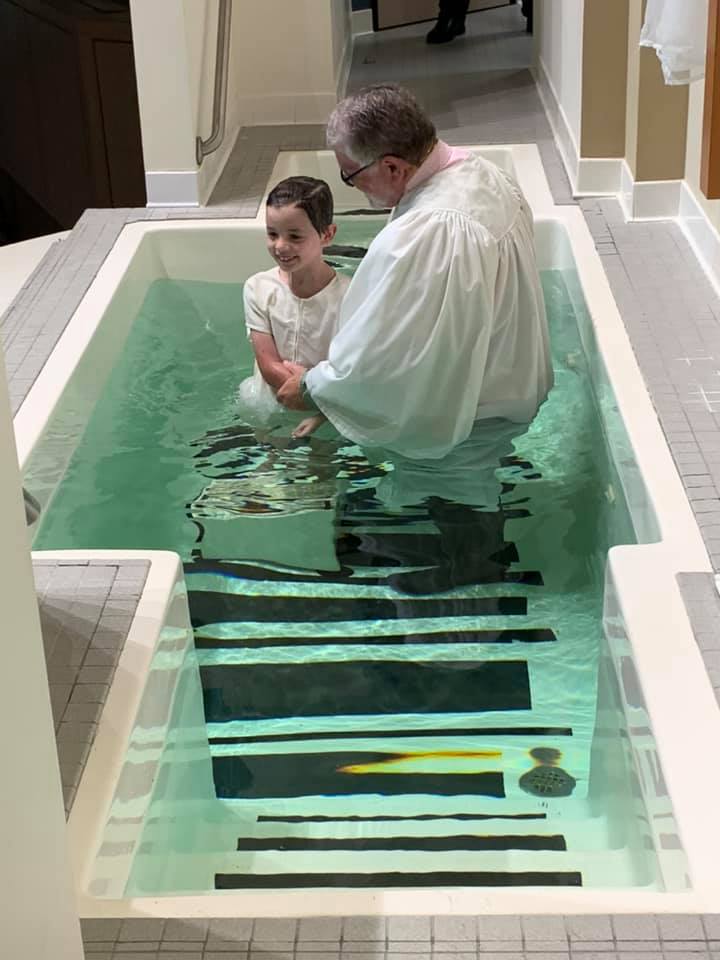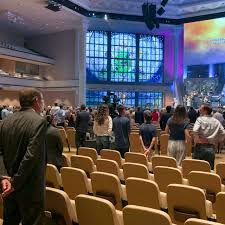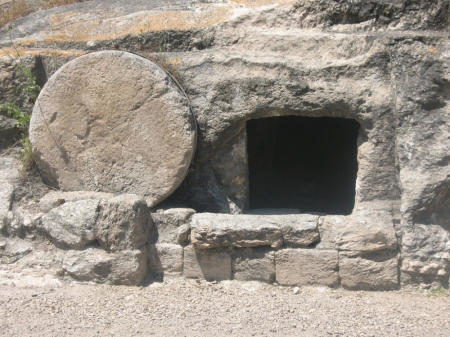Background Passages: Mark 12:13-17; Romans 7:18-21; Isaiah 26:4; Matthew 6:25-26, John 14:1, John 8:41-42 and Proverbs 3:5-6
I will never look at a penny the same way.
A wealthy businessman walked briskly down the street with his young apprentice a step behind, trying hard to keep up. The businessman stopped suddenly, looking down at his feet. All she saw that could have attracted the man’s attention were three nasty cigarette butts and a tarnished penny.
The businessman smiled as he bent down to pick up the coin. He turned the coin in his hand and put it in his pocket without a word, resuming his purposeful stride.
Sitting in the meeting, the apprentice’s mind kept wandering back to the penny. The man had everything…a highly successful business, a beautiful mansion on the lake, cars that cost more than the apprentice’s house and a beautiful, devoted family. Why would such a man bother to pick up a dirty penny?
The two finished their meeting and went to lunch at an exclusive restaurant. Throughout the meal, the scene on the street continue to nag at the young woman. Her curiosity finally got the better of her. She told the man about a coin collection she had as a little girl, wondering if the penny her boss found on the street had some value.
The businessman smiled as he dug the coin from his pocket and wiped the grime from its surface with his linen napkin. He placed the coin in the young woman’s hand.
“Look at it,” he said. “Read what it says.”
She read the words, “United States of America.”
“Go on,” said the businessman.
“One cent,” she answered.
“And?
“In God We Trust,” read the young woman.
The businessman took the penny and placed it again in his pocket. “I see that inscription every time I find a coin. It’s written on every single coin in our currency, but we rarely notice it. When I find a coin, I figure God dropped the message at my feet for a purpose…a reminder to trust him. Who am I to pass that up?
He continued, “I use that moment to pray. Stopping for a second to make sure my trust is truly in God at that moment. For that moment, it’s value is more than gold. Lucky for me, sidewalk pennies are plentiful.”
What a powerful reminder! What a beautiful object lesson reminding me of the need to trust the Creator of all things with every aspect of my life!
The story of the penny-finding businessman reminded me of one of those incidents where the Pharisees tried again to trap Jesus in a comment they could use to implicate and discredit him. They asked him a question about paying taxes to Rome which they felt was guaranteed to get him in trouble with either the Jewish people or the Roman authorities.
“But Jesus knew their hypocrisy. ‘Why are you trying to trap me? Bring me a denarius and let me look at it.’ They brought the coin to him and he asked them, “Whose image is this and whose inscription?’
“‘Caesar’s,’ they replied.”
(Can’t you see Jesus flipping the coin back into their hands before he answered.)
“Give back to Caesar what is Caesar’s. Give to God what is God.” (Mark 12:13-17)
Jesus tells them that life in society carries a lot of responsibilities to the world around us. In the end, though, God desires what is due him…our trust.
As Shakespeare said, “Ahhh, there’s the rub!”
Giving ourselves completely over to God in trust isn’t easy. Our own experiences tell us that we are less than trustworthy. Paul knew it.
“For I know that nothing good dwells in me, that is, in my flesh. For I have the desire to do what is right, but not the ability to carry it out. For I do not do the good I want, but the evil that I do not want is what I keep doing. If I do what I do not want, it is no longer I who does it, but sin that dwells in me.” (Romans 7:18-20)
Then, he shares Murphy’s Law of sin.
“So I find it to be a law that when I want to do right, evil lies close at hand.” (Romans 7:21)
Isn’t that the truth? We want to trust God. We want to be obedient, but the temptation to go it alone is always lurking in the shadow. Here is the truth of the Bible, though. God is trustworthy even if we are not. Isaiah called him a rock. Immovable and eternal.
“Trust in the Lord forever, for the Lord God is an everlasting rock.” (Isaiah 26:4)
Jesus issued a challenge to his disciples to quit worrying about life and trust in God’s unfailing love.
“Therefore, I tell you, do not worry about your life, what you will eat or drink; or about your body, what you will wear. Is not life more than food, and the body more than clothes? Look at the birds of the air; they do not sow or reap or store away in barns, and yet your heavenly Father feeds them. Are you not much more valuable than they?” (Matthew 6:25-26)
Later as they struggled with their understanding of his impending sacrifice on the cross, he encouraged them.
“Let not your hearts be troubled. Trust in God. Trust also in me.” (John 14:1)
That’s all well and good, but how do we do that?
Once we trust enough to accept the salvation that comes from our belief in Jesus Christ, we must make the conscious decision to trust him enough to turn our lives over to him completely. Making him Lord, or boss, of our lives. We must put our full confidence in him and his word.
He said, “…If you abide in my word, you are truly my disciples, and you will know the truth and the truth will set you free.” John 8:31-32
To abide in his word is to live it, breathe it, every day. To make his word real in the way we live. As a result, the more we put our trust in him, the more we will follow his lead. The more we see him at work in our lives, the greater our confidence and trust.
We are often our own worst enemy. To give ourselves over completely to God demands that we get out of our own way. Our natural tendency is to handle our own issues…to try to emotionally or rationally work our way through every problem we face. We think we can figure it out on our own.
When I trust in my own abilities alone, it almost always leads to failure. I eventually reach a point where I don’t know where to turn. The writer of Proverbs says it’s God who can make the path clear to us.
“Trust in the Lord with all your heart and lean not on your own understanding. In all your ways acknowledge him and he will make straight your path.” Proverbs 3:5-6
It would be so much easier if I just did that from the beginning. They are at times difficult lessons. Depend on God. Lean not on your own understanding. Get out of your own way.
Perhaps another way of looking at that is that God calls us to rest in him. His promise is that the “weary and burdened” can find rest in him. That only works if we’re willing to get out of our way or let go of our own egos.
Resting in God’s hands is another way of expressing our trust in him. when we rest on the Lord, we are leaning on his strength, learning from him. He willingly carries the load for us as we walk through life. If we grow tired or stressed, we can draw close to Jesus and find comfort and rest because we trust completely in him.
When you get right down to it, we grow in our trust in God by getting to know him.
God reveals himself through the scripture I read. The Bible studies I attend. The sermons I hear. If I’m not availing myself of those opportunities, God has a difficult time breaking through the noise of my life. Those are the places where I learn about God’s faithfulness. His consistent, unchanging nature. The more I understand him, the more I look back on my life and see his work and his presence, the more I trust him.
I wrote most of this study last night. While walking for exercise this morning, I found a penny on the street. I stopped long enough to pick it up. There is was, embossed in the copper alloy right above Abe Lincoln’s head. “In God We Trust.”
I smiled, put it in my pocket and said a prayer of gratitude to God. Like that wealthy businessman, I figure God dropped that message at my feet for a purpose…a reminder to trust him. Who am I to pass that up?
Lucky us. Sidewalk pennies are plentiful.
Go ahead. Pick it up.








